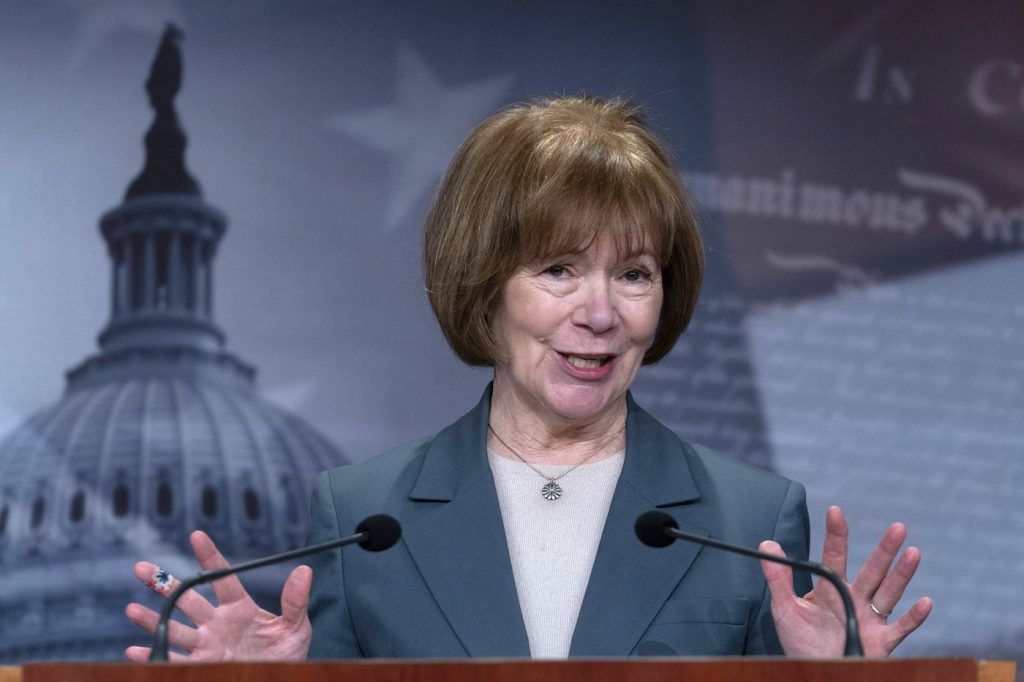ST. PAUL, Minn. (AP) — U.S. Senator Tina Smith of Minnesota announced on Thursday that she will not seek reelection, a decision that poses a challenge for her fellow Democrats as they aim to regain control of the Senate in the 2026 elections. The 66-year-old senator shared her decision through a video on social media, emphasizing her desire to spend more time with her family after two decades of service in the public sector.
In the video, Smith stated, “This decision is not political. It is entirely personal.” She acknowledged the current political climate, saying, “But it’s not lost on me that our country is in need of strong, progressive leadership right now, maybe more than ever.” This statement reflects her awareness of the pressing challenges facing the nation and her commitment to contribute meaningfully during her remaining time in office.
Smith, who has represented Minnesota in the Senate since 2018 after winning a special election, expressed her intention to focus on advocating for her constituents without the pressures of a reelection campaign. “I plan to use the two years left in my term working to represent Minnesota’s interests in the Senate without having to worry about running for reelection,” she said. This approach indicates her dedication to fulfilling her responsibilities as a senator while considering her personal priorities.
Furthermore, Smith highlighted the potential for new leadership within Minnesota. “We have a deep bench of political talent in Minnesota, a group of leaders that are more than ready to pick up the work and carry us forward,” she stated. Her remarks suggest a belief in the strength of the Democratic Party’s future candidates in the state, as well as a desire to mentor and empower the next generation of leaders.
Smith's announcement comes at a critical time for the Democratic Party, as they are exploring strategies to maintain or gain seats in the Senate amid a highly polarized political landscape. Her departure from the race could create an opportunity for another candidate within the party to step forward, potentially altering the dynamics of the 2026 elections.
Her decision not to run for reelection allows her to concentrate on legislative issues that matter to her constituents while paving the way for emerging leaders within her party. By emphasizing the importance of continued progressive leadership, Smith has opened the door for new voices to emerge in Minnesota’s political sphere, suggesting a shift in focus toward fostering upcoming talent.










